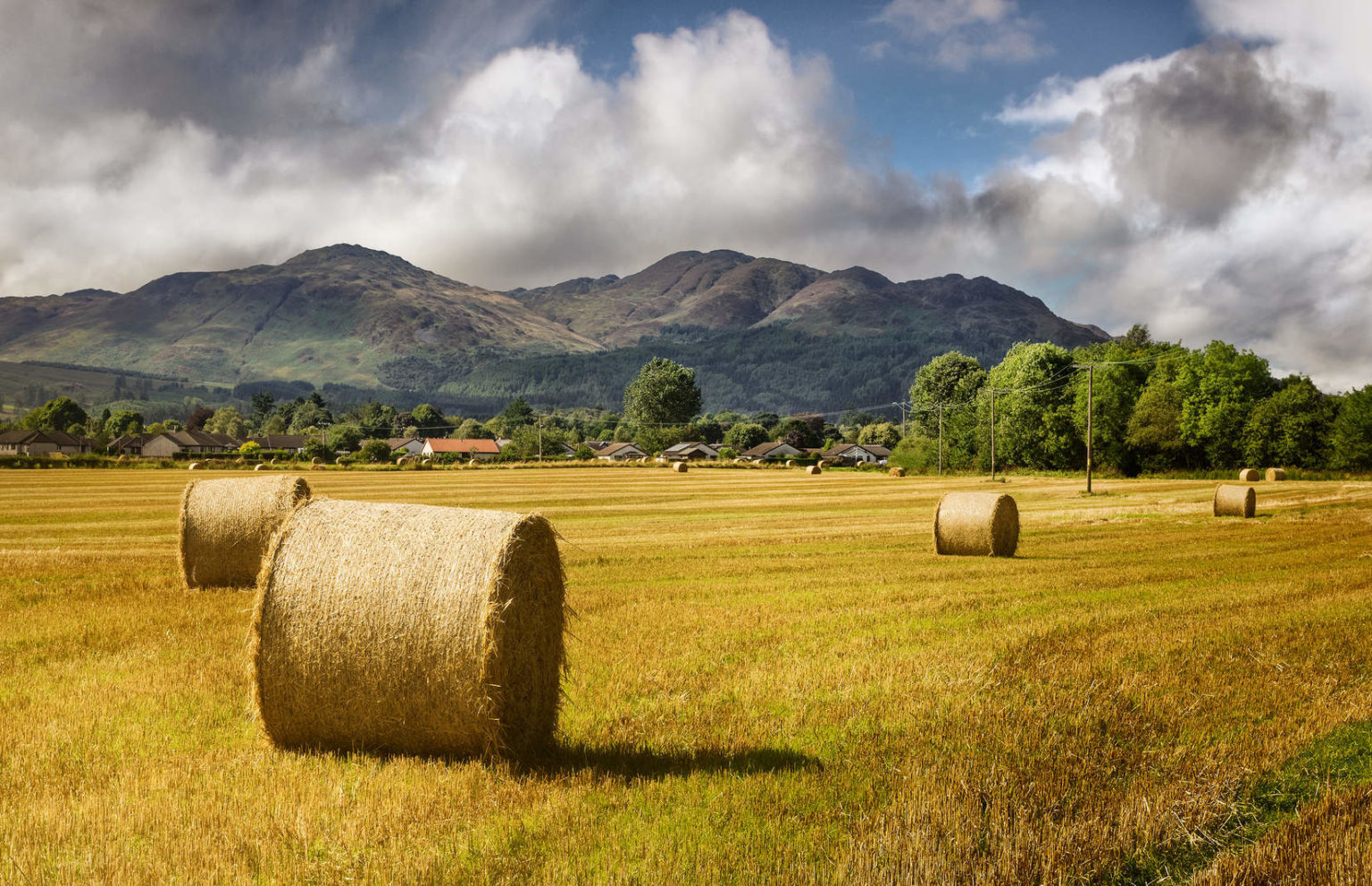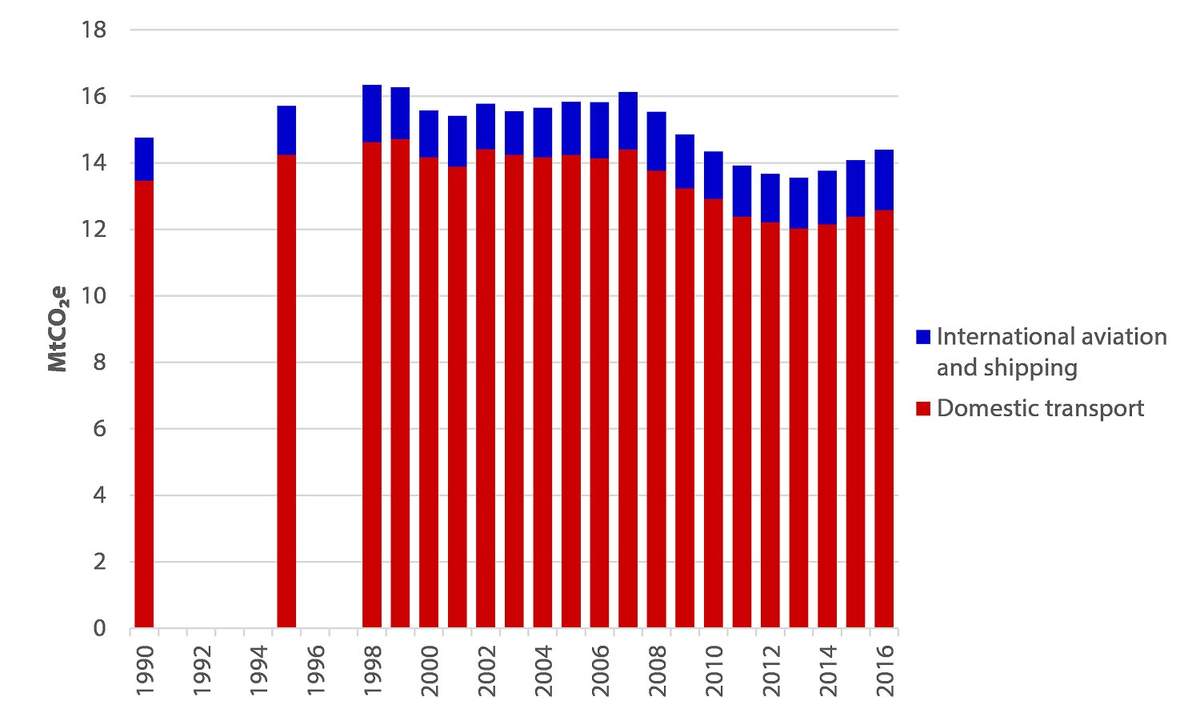Scotland has been commended for its ambitious climate targets, but a report this week from the Committee on Climate Change tells the Scottish Government there is much work to do on issues like transport and agriculture.
Chris Stark the Chief Executive of the Committee on Climate Change stated clearly: “Special mention needs to be made for the energy efficiency plan – which is the best in the UK. But it’s time to get real on transport and agriculture.” DeSmog UK spoke to key experts to find out what needs to be done if Scotland really is going to match the rhetoric and meets its own targets as countries aim to move towards Net Zero.
The Scottish Government’s new Climate Bill sets a target of reducing emissions by 90 percent by 2050. The UK government has a target of 80 percent by 2050. Both want to strengthen these goals following the IPCC 1.5°C report which will be published in early October.
The CCC report warns that the Scottish Government needs to act decisively in every sector to ensure that Scotland meets its existing commitments and to prepare itself for future more stretching goals.
Lord Deben, chairman of the CCC, said: “Decarbonisation of Scotland’s electricity sector, and reductions in emissions from waste, have seen Scotland outperform the UK overall as emissions continue to fall year-on-year to nearly half of 1990 levels.”
However, he added:
“The Scottish Government has made some progress on tackling issues raised in the committee’s report in 2017. However, challenges remain.”
“Achieving a 90 percent cut in emissions by 2050, as envisaged within the new Climate Change Bill, means greater effort is now required across other areas of Scotland’s economy. This includes policies to drive down emissions in sectors where they are either flat or rising, such as transport, agriculture and energy efficiency in buildings. Without real action in these areas, Scotland may fall short of its long-term goals.”
Commenting on the CCC’s report, which assesses Scotland’s progress on reducing climate emissions, Tom Ballantine Chair of Stop Climate Chaos Scotland said:
“This new independent report is clear that we need decisive and urgent action to keep Scotland’s climate change emissions falling rapidly. The report states that the Scottish Government should be doing much more to cut emissions from food and farming, from travel and heating; building on the success we’ve seen in reducing emissions from electricity and waste. The Committee now call on the government to spell out what further measures they could take in all sectors.
“Science is telling us we need to act faster. But so are our own eyes and ears. We are starting to see the serious effects of wilder weather, with droughts and heatwaves close to home and around the world this year. With the new Climate Change Bill now before Parliament, MSPs have an important opportunity to increase Scotland’s climate action, by setting ambitious targets that increase action over the next decade and eliminate our contribution to climate change by 2050, and by bringing in effective policies in underperforming sectors.”
Like what you’re reading? Donate here to support DeSmog UK‘s journalism today
What is to be Done?
The CCC report lays out how we are now past the ‘low hanging fruit’ of energy reduction – principally by closing Longannet coal-fired power station. Now the challenge moves to other areas of our lives where the impact is not so distant as ‘how our electricity is fuelled’.
The Scottish Government’s Climate Change Bill aims for a 90 percent cut in emissions by 2050, with almost no new effort over the next decade. But there are no major new policies within it.
In order for the new Climate Bill to match the ambition of the Paris Agreement, the campaign group Stop Climate Chaos Scotland says it must:
• Set a target of net- zero greenhouse gas emissions by 2050 at the latest, and a reduction of 77 percent by 2030. Net zero means getting emissions as low as we can whilst upping our action to develop carbon sinks like forestry and peatland restoration.
• Ensure that future finance budgets are consistent with climate targets
• Commit to actions that cut emissions and deliver a cleaner, healthier, more prosperous Scotland by:
– Making all homes efficient and warm: Ensure that all homes have at least Energy Performance Rating ‘C’ within a decade.
– Introduce a nitrogen balance sheet for Scotland by 2020 and develop a package of support and regulation for climate-safe farming.
– Phase out the sale of new fossil fuel cars by 2030 to reduce emissions, clean up air pollution and improve the nation’s health.
Food and Agriculture
Food and farming is an area where Scotland must do much better. But it’s an area that is rich in ideas and innovation about how to achieve real reductions.
Pete Ritchie from Nourish Scotland told DeSmog UK:
“There are three levels of action needed to reduce and offset emissions from farming.”
“The first set of actions are simply about resource use efficiency – making better use of nitrogen and improving animal health so we can produce at least the same level of output with less emissions. These actions benefit farmers financially, and the best farmers are already doing well – we need close the productivity gap.”
“The second set of actions are about investing more in things we know how to do – agroforestry (combining trees with grazing or crops), organic farming, and encouraging farmers to increase soil carbon (where there are already examples of farmers being paid for carbon sequestration). There is also scope to accelerate woodland creation on marginal land – including land currently used for deer and grouse shooting – without reducing Scotland’s overall food production.”
“The third set of actions are techniques which we have not yet used at scale – for example turning biomass into biochar to provide long-term carbon storage and improve drought-prone soils, or speeding up the geological carbon cycle by spreading rock dust on farm land”.
“The first Climate Change Act introduced the Land Use Strategy. Ten years on, we need to move this up a couple of gears so it becomes central to decisions about the environment and climate change. We can meet net zero by 2050 – if while we decarbonise energy and transport, we also recarbonise our land.”
Director of Food and Policy at sustainable food and farming charity Soil Association Scotland, Aoife Behan, agreed much more needs to be done in the agriculture sector: She told DeSmog UK:
“We are proud that Scotland is leading the way in reducing greenhouse gas emissions. However, the agriculture sector is currently contributing 22.5 percent of Scotland’s emissions – more support needs to be given to farmers and land managers to address this issue.”
“We believe Scottish Government should introduce a nitrogen balance sheet to improve the efficiency of use of nitrogen fertilisers. There should be more support for the restoration of carbon-rich peatlands and incentives for farmers to regularly test their soils to increase soil organic matter. Promoting agroforestry is also key: more farmers need to be helped to see how integrating trees into their farming business could be of value to them and the climate.”
“Finally, more support for organic farming is vital: public bodies in particular must procure more food from these farms and help drive the transformation to carbon-neutral food production. All of these interventions would go a long way towards helping Scotland reach its target of a 90% reduction in carbon emissions by 2050.”
Transport
The CCC report shows that the Scottish Government is still failing on transport and climate. Transport is now Scotland’s largest source of emissions, having increased every year since 2010.
Matt McDonald, spokesperson for Transform Scotland said:
“The Scottish Government’s Climate Change Plan failed to set out sufficient action in the areas of walking, cycling, and bus use. So it’s unsurprising that it continues to go backwards in carbon emission reduction. The Government needs to focus its capital expenditure plans on sustainable transport rather than the carbon intensive subsidies for road use and aviation that form its current spending priorities.”
Transport emissions make up more than a third of Scotland’s overall emissions of 41.5m tonnes’ equivalent of CO2 (MtC2e) in 2016.
Part of the problem is that a large part of the Scottish Government’s green transport policy is focuses around a shift to electric vehicles. At one level this is an essential long-term goal, and it is quite right to start this process now, but it will not have immediate impact for two good reasons: first, most people can’t afford an electric car, second, the range is still limited.
There’s another problem. A new report out today from Opec says that world oil production will soar to new records over the next five years, as a dramatic expansion in demand from airlines offsets the arrival of electric cars. According to the Guardian’s Adam Vaughan: “The world’s airlines will be the single fastest growing user of oil, increasing consumption by 2.2 percent a year on average, to 2040. However, the largest absolute growth is expected to come from road transport.”
“The number of vehicles on roads across the world are expected to leap from 1.1 billion now to around 2.4 billion in 2040. In its central scenario, Opec expects just 320 million of those to be electric, a number that climbs to 720 million in a scenario where battery-powered cars take off rapidly.”
The Scottish First Minister said last year she wanted to see sales of new petrol and diesel cars end in Scotland by 2032, that’s eight years earlier than the UK government target. But the CCC says it saw little evidence that the 2032 target would be met.
In short the green transport policy is scattergun and uncoordinated. Bus travel is falling (down 10 percent over the past five years), whilst private car use and aviation is continuing to grow. Whilst the green transport policy tries to reduce emissions, other government initiatives, like tourism have a massive growth strategy. There is no low-carbon route in or out of Scotland.
The First Minister announced another £15 million towards electric charging points for cars last month. She has said the A9 trunk road from Perth to Scrabster would become the UK’s longest “electric highway” with regular roadside charging points, a plan quickly dubbed the ‘Electric Brae’.
However sales of ultra-low emission (ULEV) cars have been slower in Scotland than in the rest of the UK. Data shows 7,700 ULEV cars were sold in Scotland in the first three months of 2018 compared with 130,000 in England. That’s about 4,000 less than Scotland’s population share.
Net Zero
As all governments are trying to play catch-up and meet their climate policy targets, we are moving to a new space where the policies actually begin to infringe on people’s daily lives and experiences. This will become more and more urgently obvious as we move from reducing carbon emissions to eliminating them in what is called Net Zero.
A Net Zero emissions economy is a response to climate science showing that in order to halt climate change, carbon emissions have to stop – reducing them is not sufficient. The Labour party just committed to the target at its annual conference.
But this won’t be easy. The experience in Scotland is of policy-makers making huge progress in areas of energy and waste but that the next phase of this will demand innovation in how we produce food and how we get about from a to b.
Image credit: Flickr CC Neil Williamson.
Subscribe to our newsletter
Stay up to date with DeSmog news and alerts








